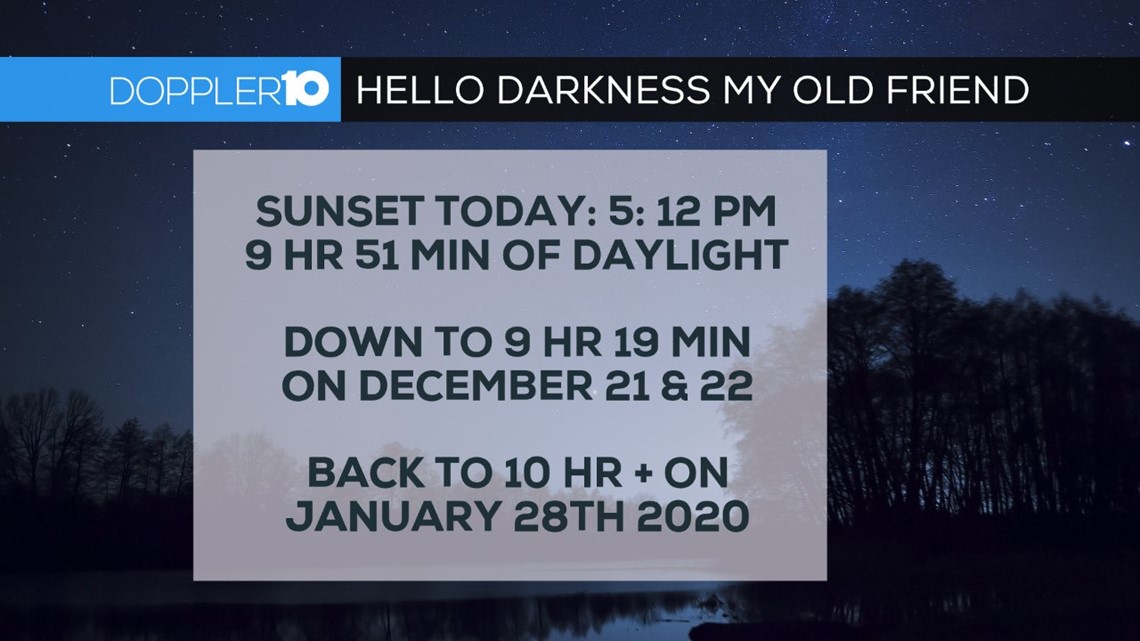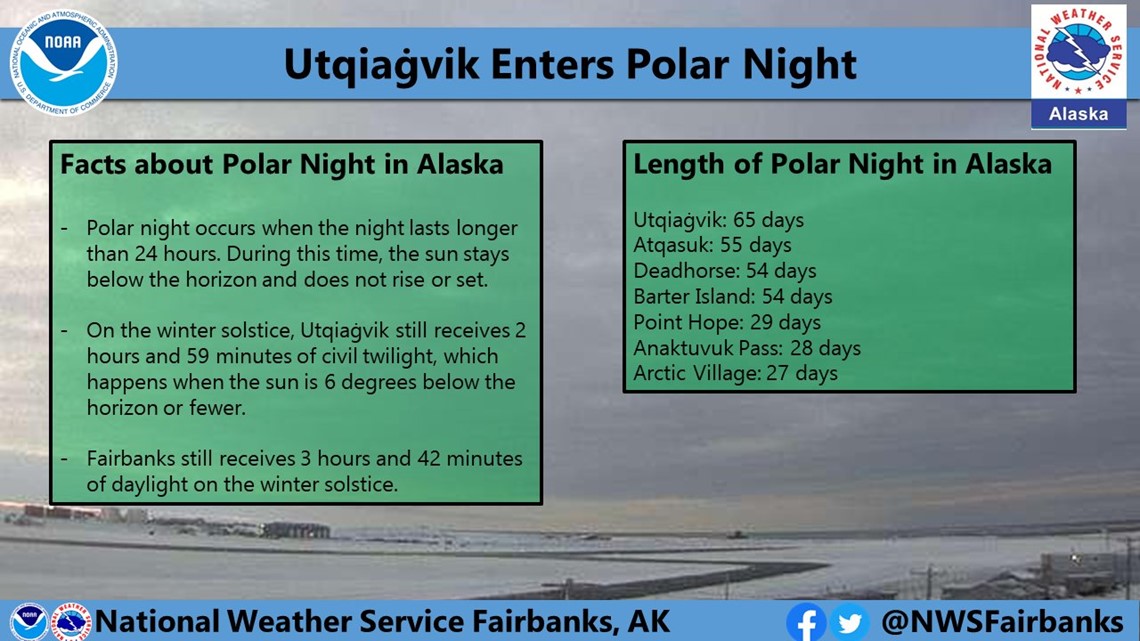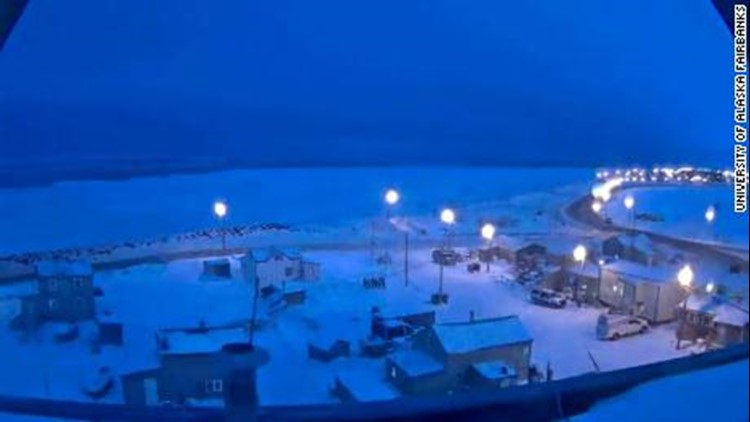Columbus, Ohio- Tuesday's sunset is officially 5:12 p.m. and we'll continue to lose a few minutes of daylight until we reach our darkness day or "least amount of daylight" on December 21 & 22.


9 hours of daylight doesn't sound like a lot and it isn't for us in central Ohio, but try going 2 months without seeing the sunrise. That's the reality for the northernmost portion of the United States.
This past Sunday afternoon, Utqiaġvik, Alaska formerly known as Barrow, has seen their last sunset until January 23, 2020(65 days of Polar Night).


This does not warrant complete darkness for the city, though. Polar night is when the sun stays below the horizon and does not rise or set, so areas will receive a few hours of what is call civil twilight, which happens when the sun is 6 degrees below the horizon or fewer.
During our winter, the sun doesn't rise north of the Arctic Circle due to the tilt of the Earth away from the sun's direct path of radiation(most direct rays shine between the equator and Tropic of Capricorn, roughly 23.5 degrees south latitude). The opposite happens next summer when the sun doesn't set for more than two months for areas north of the Arctic Circle.



